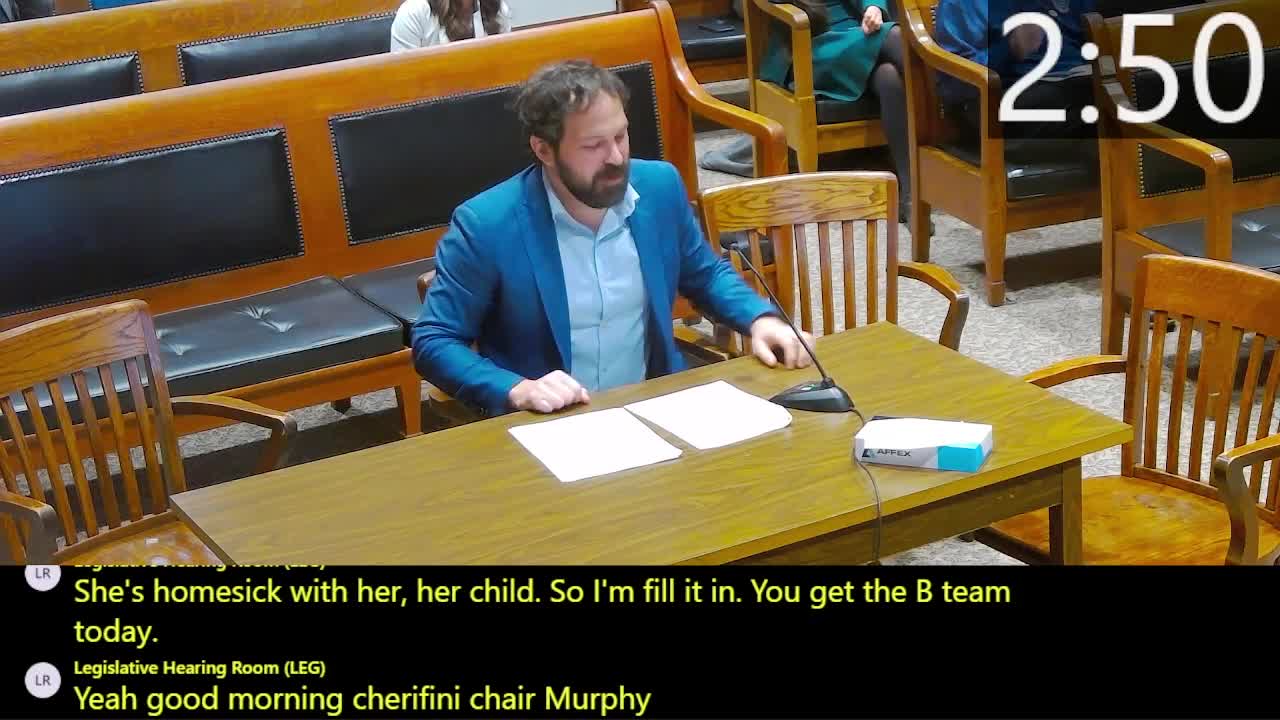Planners and advocacy groups urge flood-disclosure law as inland and coastal flood risk rises
Get AI-powered insights, summaries, and transcripts
Subscribe
Summary
Regional planners and environmental groups urged the Joint Committee on Financial Services to advance H.1345/S.753, a bill that would require sellers and landlords to disclose a property's flood history or recurring flood-insurance obligations to buyers and renters.
Regional planners and environmental advocates testified in favor of H.1345/S.753, legislation to require notification to prospective buyers and renters when a property has a history of flooding or requires flood insurance.
MAPC's Ben Du said Massachusetts is one of only 14 states without any flood-disclosure requirement and the only New England state lacking such a law. "Flood disclosure is not a new or even novel idea," he said, arguing disclosure would inform buyers and renters about risks that FEMA maps and current rules do not fully capture.
Conservation and watershed advocates described recent modeling and field work showing inland and coastal flood exposure will increase with climate change. Ian Cook, executive director of the Neponset River Watershed Association, said scenario modeling shows large increases in the number of homes exposed to flooding by mid-century. Nasir Brahim of the Mystic River Watershed Association cited the Massachusetts Climate Change Assessment and a projected rise in annual building damages from roughly $340 million in 2030 to $1.2 billion in 2070 without stronger planning measures.
Why it matters: Witnesses said a lack of disclosure leaves renters and buyers vulnerable to surprise claims and costs. A low-lying basement unit, for example, can appear affordable until a storm causes thousands of dollars in damage and potential loss of personal property. "Just one inch of water can cause $25,000 of damage to your home," Conservation Law Foundation analyst Ali Heiple told the committee.
Policy details: Testimony recommended that disclosure require sellers and landlords to report past flooding, whether FEMA or other agency records show the property in a special flood hazard area, and whether federal disaster assistance or repeated claims have been made on the property. Advocates said disclosure should apply to buyers and renters and be designed to be clear and consistent with existing real-estate and insurance processes.
Process: Proponents requested that the committee report H.1345/S.753 favorably. No committee vote on the bill is recorded in the hearing transcript.
Ending: Supporters said disclosure is a low-cost, practical step to improve consumer protection while broader resilience measures (zoning, stormwater management, coastal defenses) continue to be developed.
